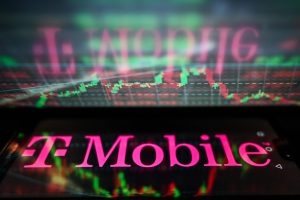The Department of Justice Antitrust Division issued an unusual statement yesterday about its decision to let T-Mobile complete an acquisition of US Cellular's wireless operations.
Assistant Attorney General Gail Slater of the Justice Department's Antitrust Division, a Trump nominee who was confirmed by the Senate in March, said in a 900-word statement that the deal and two related transactions "will consolidate yet more spectrum in the Big 3's oligopoly, which controls more than 80 percent of the mobile wireless spectrum in the country." She said the top three carriers—T-Mobile, AT&T, and Verizon—control more than 90 percent of the mobile subscriptions in the United States.
Despite that, the DOJ said it closed its investigation into the merger and will not ask a court for an injunction to prevent T-Mobile from buying US Cellular assets. US Cellular is being carved up among the three major wireless firms, as the regional carrier is selling spectrum licenses in separate deals with Verizon and AT&T for about $1 billion each. T-Mobile is paying $4.4 billion for about 30 percent of US Cellular's spectrum assets and its wireless operations.
The DOJ press release said it approved the T-Mobile deal because "the potential harm and offsetting benefits of the transaction do not warrant an enforcement action. US Cellular's inability to maintain its competitive position would result in declining value to its subscriber base, whereas the transaction offers them hope that they will be able to experience the benefits of a more robust cellular network."
The DOJ announcement did not mention that it came in the same week that T-Mobile cleared a major roadblock by agreeing to the Trump administration's demands to end its DEI (diversity, equity, and inclusion) policies. T-Mobile's decision resulted in the Federal Communications Commission approving its joint venture to acquire fiber provider Metronet and will likely smooth the way for the FCC to grant approval of T-Mobile's deal with US Cellular. (Update: the FCC announced approval of the T-Mobile/US Cellular deal late on Friday.)



 Loading comments...
Loading comments...
